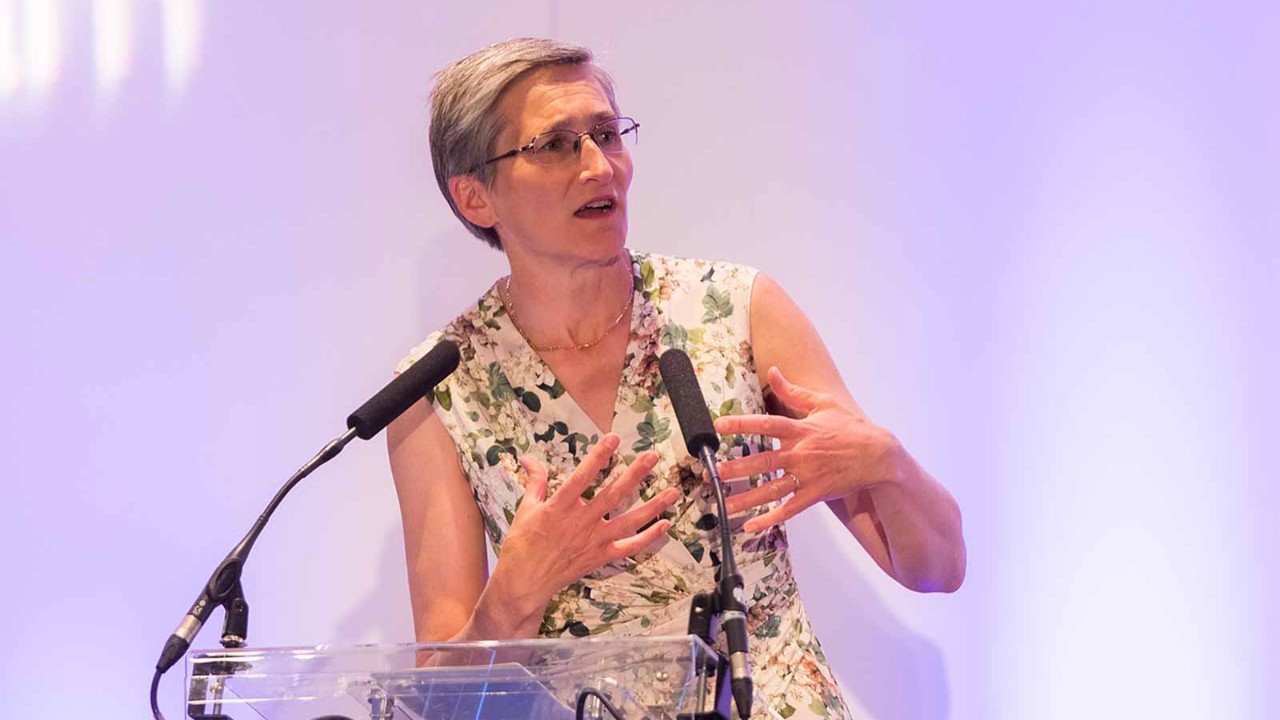
Dame Clare Moriarty FCCA still displays the preternatural calm and understated can-do-ness of a career-long British civil servant. But unlike many retired mandarins who go to serve on boards, sit in the House of Lords or write their memoirs, Moriarty has jumped back into a commendable public service role as chief executive of Citizens Advice.
As rapidly becomes clear, this role is neither a picnic nor a swan song. Citizens Advice is busier than it has ever been, with soaring demand for the confidential independent advice offered by the charity. With the cost-of-living crisis coming hot on the heels of the pandemic – a crisis that itself followed on from a decade of cost-cutting across public services – Citizens Advice is seeing stratospheric numbers of requests for help with ever more complex problems.
‘Expenditure no longer matches income for a lot of people’
‘Expenditure no longer matches income for a lot of people,’ Moriarty says, summing up arithmetically what is a devastating reality for thousands across the country.
Moriarty is not sentimental but neither is she dispassionate when she explains the soaring levels of homelessness, and consumer and employment issues faced by the people the organisation aims to help. ‘Fundamentally, these are people’s livelihoods,’ she says.
She speaks with pride of Citizens Advice’s policy work, which is based on its access to and collection of enormous amounts of data about ordinary people. ‘We have one common case management system across the charity,’ she says. ‘This gives us access to demographic data and “problem data”, which allows us to spot trends, to see the issues behind the first presenting issue and to advocate for our clients.’
Rarely simple
Moriarty says that clients’ issues are rarely as they first seem. A debt, legally speaking, is just that. But Citizens Advice regularly finds that the fundamental issue is, say, the cost of care for children or the elderly, poor mental health, and even a cancer diagnosis.
She explains: ‘The story is initially simple – the client’s income hasn’t gone up in years, but their rent or mortgage suddenly has. They have a negative budget. And month on month, that compounds.’
‘We are trying like mad just to get clients through their problems where we used to help them get back in control’
She adds: ‘It’s getting harder to help people.’ She points out that the common solution, a debt relief order, costs £90, and many of Citizens Advice’s worst-off callers and visitors don’t even have that much cash to secure themselves this much needed respite, or have already had one order in the past six years, rendering them ineligible for a second.
‘Our solutions simply don’t work as well as they used to,’ Moriarty says. ‘The depth and complexity of problems has changed, issues are multiple and interconnected, and we are trying like mad just to get clients through their problems where we used to help them get back in control or even better.’
Rapid changes
Moriarty has also steered the charity through rapid changes in how it gives advice. ‘It used to be that you went to the centre, queued up at eight o’clock, and hoped to be seen by an adviser. Now we offer more routes into the service. Ten million of our clients use self-service on our much expanded website. And 2.5 million use one-to-one advice either over the telephone or in person.’
Around 65% of the charity’s advice used to be given face to face. Citizens Advice now boasts hundreds of online, signposted solutions, web chats and a cost-of-living data dashboard that allows users to drill down into the data behind the difficulty.
There is no typical day for Moriarty. She points out that Citizens Advice actually consists of 246 charities, each of which is local, independent and embedded in the community. Her week, then, is a mix of visiting local Citizens Advice centres and talking to advisers, and managing the challenges of a federated, charitable organisation.
‘I spend a huge amount of time in meetings,’ she says, ‘talking about how we can take decisions, move forward as an organisation, and get more local input.’
‘There’s no job where finance isn’t important’
All about finance
Moriarty’s stellar career has prepared her well for such a role. She put in 35 years with the Civil Service, starting as a fast-streamer and moving through the Departments of Health, Transport, Justice, DEFRA and Exiting the EU, ending up as permanent secretary. She also chaired the Health Foundation’s Covid-19 impact inquiry in 2020–21. It all adds up to a deep and close knowledge of how the country works.
She is clear that her accountancy qualifications have been invaluable throughout her career. ‘I have had an unusual career for an ACCA member,’ she admits, ‘but the financial understanding that I have has made it possible to be taken seriously, and everywhere I’ve gone, I have had a community where progress has been made with this common financial language.’
Her sign-off is pure accounting professional: ‘There’s no job where finance isn’t important.’

